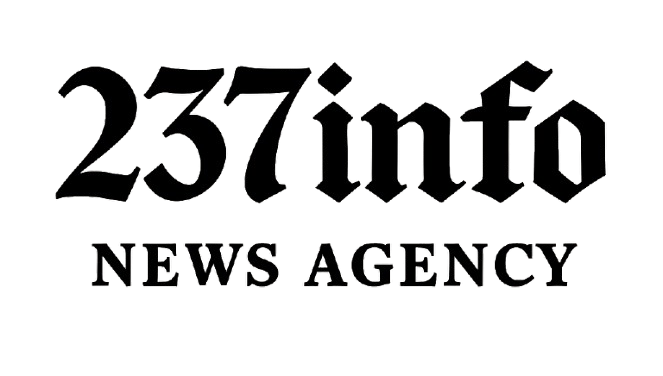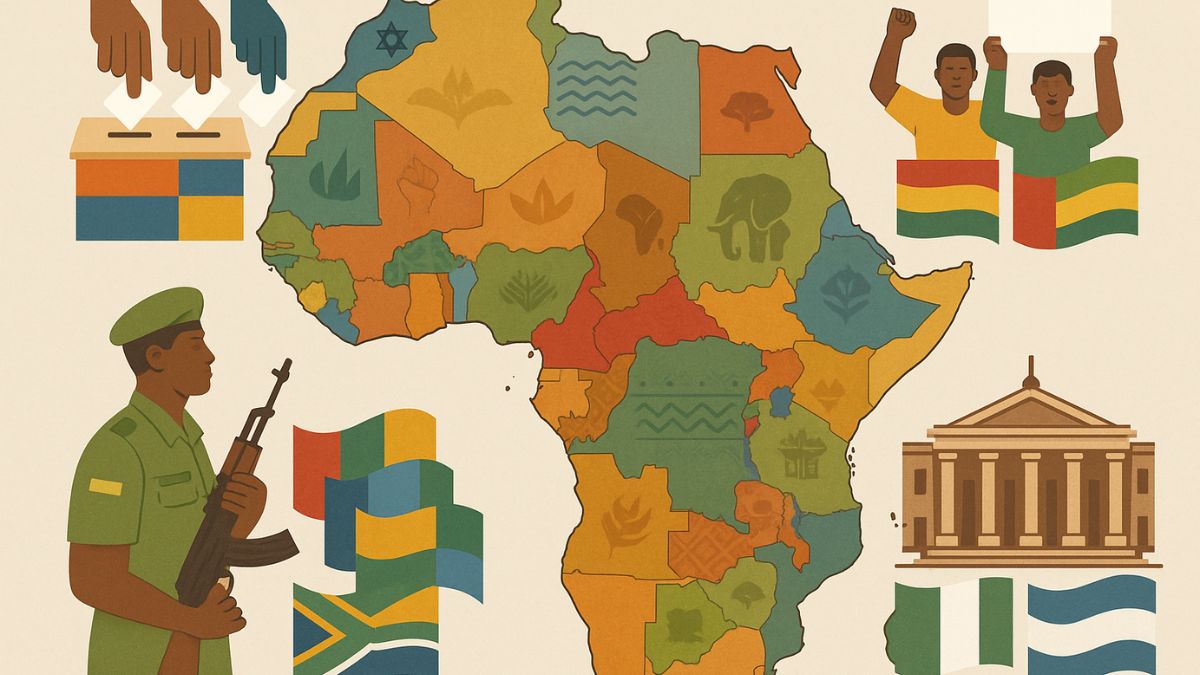When examining governance across Africa, Cameroon presents a compelling case study. As a bilingual country with over 250 ethnic groups, a long-serving president, and a hybrid legal and political system, Cameroon reflects both the promise and pitfalls of post-colonial African governance. But how does its political system compare to those of its neighbors and peers across the continent?
In this blog post, we explore the similarities and differences by comparing Cameroon’s politics to other African nations, focusing on democratic structures, electoral systems, leadership, civil liberties, and conflict management. This comparative lens not only provides insight into Cameroon’s own political dynamics but also helps identify potential pathways for reform.
1. Political Longevity and Presidential Power
Cameroon is one of the African countries most associated with entrenched leadership. President Paul Biya has ruled since 1982, making him one of the longest-serving leaders in the world.
Comparative Insight:
- Uganda: Like Biya, President Yoweri Museveni has been in power since 1986. Both countries have amended their constitutions to remove term limits, allowing indefinite rule. Uganda also mirrors Cameroon’s centralized executive power and use of security forces to suppress dissent.
- Rwanda: President Paul Kagame has led Rwanda since 2000 (and was de facto leader since 1994). Although Rwanda is praised for stability and economic growth, it, like Cameroon, exhibits a strong-man leadership style with limited opposition freedom.
- South Africa and Ghana, on the other hand, have maintained regular leadership changes, with constitutional limits and stronger institutions that prevent the over-concentration of power. In both countries, peaceful transitions and judicial independence have contributed to political maturity.
Conclusion: Cameroon aligns more closely with authoritarian-leaning regimes where executive dominance hinders democratic rotation of leadership.
2. Democratic Elections and Electoral Credibility
Cameroon holds regular elections, but they are widely criticized for lack of transparency, manipulation, and voter suppression. The ruling party, CPDM, has never lost a presidential election since 1985, and opposition figures face constant harassment.
Comparative Insight:
- Kenya: While Kenya has experienced election-related violence, its judiciary has shown increasing independence, notably by annulling the 2017 presidential election and ordering a re-run. Cameroon’s judiciary, by contrast, is largely seen as an extension of the executive.
- Nigeria: Despite challenges, Nigeria has conducted multiple peaceful transfers of power since 1999. The role of the Independent National Electoral Commission (INEC) and growing voter awareness contrasts with Cameroon’s Elections Cameroon (ELECAM), which is frequently accused of bias.
- Zimbabwe: Shares more similarities with Cameroon, where the ruling party, ZANU-PF, has dominated since independence, and elections are often marred by state-sponsored intimidation and rigging.
Conclusion: Cameroon lags behind regional democracies in terms of electoral competitiveness, transparency, and judicial independence during elections.
3. Freedom of Press and Civil Liberties
Cameroon’s press is active but heavily censored. Journalists and activists who criticize the government risk arrest, harassment, or even disappearance. Laws around terrorism and public order are often used to silence dissent.
Comparative Insight:
- Senegal and Botswana consistently rank among the freest in terms of press rights in Africa. In Senegal, media houses routinely criticize the president and government with minimal repercussions.
- Ethiopia and Tanzania, like Cameroon, have tightened media restrictions in recent years. Arrests of journalists and internet shutdowns are not uncommon.
- Cameroon’s use of internet blackouts, particularly in the Anglophone regions, places it among countries with authoritarian digital control, similar to Chad and Sudan during protests.
Conclusion: Cameroon exhibits characteristics of a repressive regime regarding press freedom and civil liberties, often placing it near the bottom of global rankings.
4. Conflict Management and National Unity
Cameroon is currently grappling with an armed separatist conflict in its Anglophone regions. What began as peaceful protests in 2016 escalated into a civil conflict, now affecting thousands of lives and displacing communities.
Comparative Insight:
- Ethiopia’s handling of the Tigray conflict mirrors Cameroon’s militarized approach to internal dissent. In both cases, attempts at negotiation were delayed, and military operations took precedence over dialogue.
- Ivory Coast and Sierra Leone provide examples of successful post-conflict reconciliation processes, involving truth commissions and international mediation, something Cameroon has yet to fully implement.
- South Sudan and Democratic Republic of Congo (DRC) offer cautionary tales where unresolved ethnic and political tensions have led to protracted instability.
Conclusion: Cameroon’s approach to conflict—especially in the Anglophone regions—remains reactive and militarized, lacking the inclusive political dialogue that has worked in other post-conflict African nations.
5. Civil Society and Political Participation
Cameroon has a relatively weak civil society space. NGOs and youth-led movements are active but often face limitations on assembly and financing. Political participation is largely restricted to established elites.
Comparative Insight:
- Nigeria and Kenya have seen powerful youth-led movements such as #EndSARS and protests against election interference, resulting in policy shifts and international awareness.
- Ghana boasts a robust civil society network that actively contributes to policy, election monitoring, and advocacy, with fewer restrictions compared to Cameroon.
- In Cameroon, groups like Stand Up for Cameroon and peaceful protestors face routine arrests, while opposition leaders like Maurice Kamto of the MRC have been jailed for organizing demonstrations.
Conclusion: While civil society exists in Cameroon, it lacks the political space and protections enjoyed in stronger democracies like Ghana or even transitional states like Kenya.
6. Decentralization and Federalism
One of Cameroon’s most persistent challenges is the tension between its centralized state structure and demands for federalism, especially from Anglophone regions.
Comparative Insight:
- South Africa operates under a decentralized model where provinces have significant authority over education, policing, and local governance.
- Nigeria‘s federalism allows states to control their budgets, create local policies, and manage state-level security agencies like Hisbah or Amotekun. Despite challenges, it provides a model for power-sharing.
- Cameroon’s “decentralization” policy, promised since the 1996 Constitution, remains largely cosmetic. Regional councils have little power or autonomy, and governors—appointed by the president—hold real authority.
Conclusion: Compared to more federal or decentralized systems in Africa, Cameroon’s governance structure is rigid and overly centralized, contributing to regional grievances and stalling democratic development.
Conclusion: Cameroon’s Place in African Politics
Comparing Cameroon’s politics to other African nations reveals a mixed picture. While Cameroon has avoided coups and outright collapse, it is burdened by authoritarian governance, electoral manipulation, and unresolved internal conflicts. It shares similarities with long-standing regimes like Uganda and Zimbabwe but falls short when compared to democracies such as Ghana, Botswana, or South Africa.
Key challenges include:
- Overcentralized presidential power
- Weak electoral and judicial institutions
- Ethnic and linguistic tensions
- Suppression of civil liberties and political participation
- Lack of accountability and transparency
For Cameroon to evolve, it must draw lessons from regional peers—both in success and failure. Building strong institutions, enabling civic space, embracing genuine decentralization, and engaging in inclusive dialogue are not just desirable—they are necessary for long-term peace and progress.

